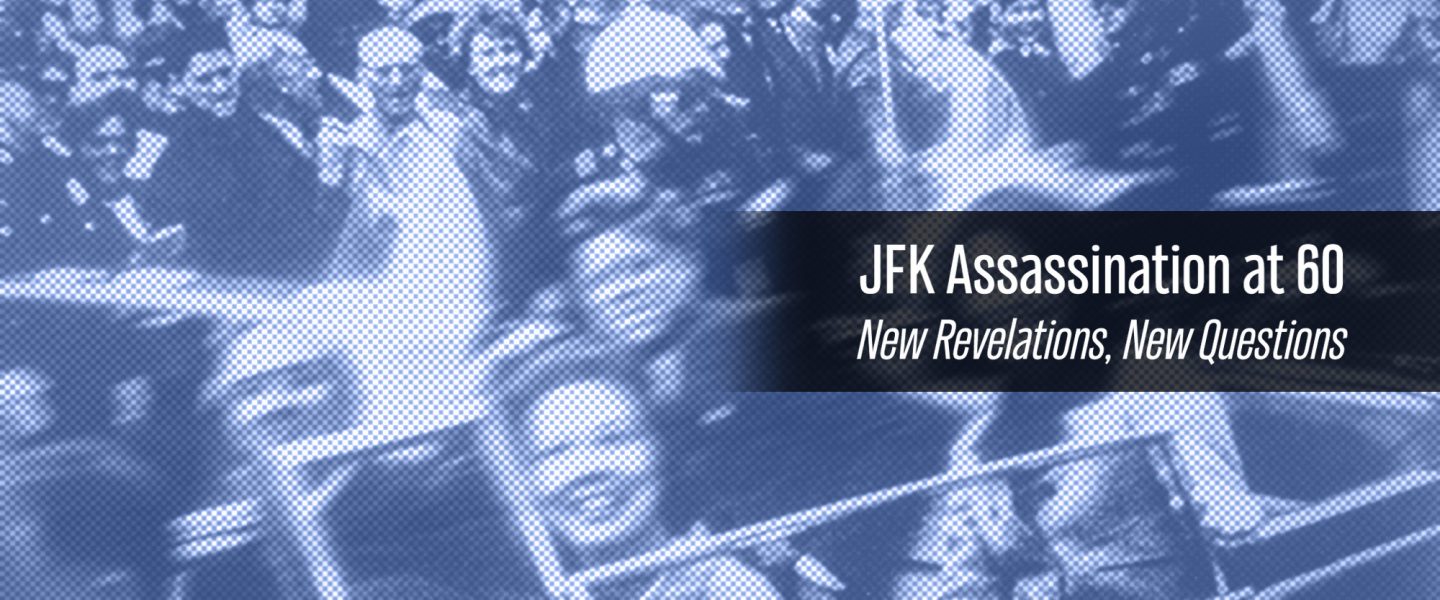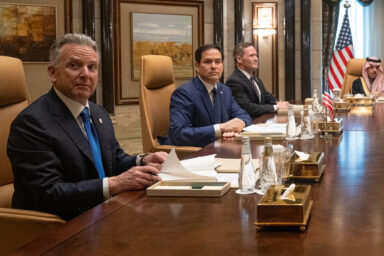Throughout November, WhoWhatWhy will mark the 60th anniversary of John F. Kennedy's death with a series of articles which present new original, in-depth research from a forthcoming book on Kennedy presidency's and assassination.
|
Listen To This Story
|
November 2023 marks the 60th year since President John F. Kennedy was assassinated in Dallas. Over the following weeks, we will be publishing a series exploring the ways in which the assassination’s effects are still felt throughout government and society. As articles in the series are published, they will be added below.
The American public has never been satisfied with the conclusion of the first official investigation, the Warren Commission, that an enigmatic loner named Lee Oswald managed to commit the murder alone for indiscernible motives — the more so since Oswald was soon murdered in police custody before he could defend himself.
The second official investigation, by the House Select Committee on Assassinations (1976-1979), found that a conspiracy was probably to blame — in line with most Americans’ views. But the identity and motives of the conspirators remained contentious.
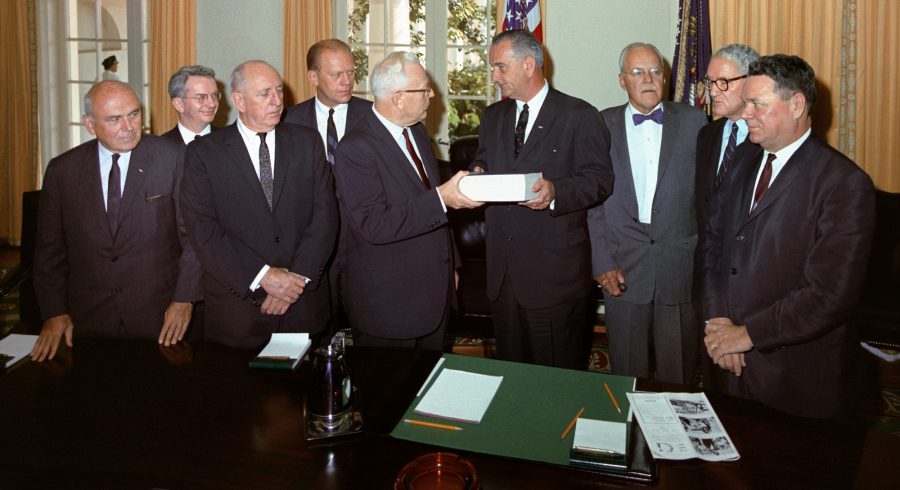
A direct line can be drawn from the Warren Commission’s attempt to put untenable conclusions over on the American people — constantly abetted by cooperative media and historians — to the mistrust behind today’s explosion of conspiracy theories that have little basis in reality. Yet reexamining the Kennedy case may seem to risk fanning those flames. Some may also wonder why a long-ago event merits our attention, compared to today’s pressing issues.
WhoWhatWhy feels that candor is always needed in a democracy; that judicious examination of a historical mystery can provide a counterweight to indiscriminate conspiracy-theorizing; and that the possibility of undemocratic transfer of power is still a pressing issue today. And that Kennedy’s was a potentially transformative presidency cut short, maybe for that reason.
That is why we mark the anniversary with this series of articles, which present new evidence from original, in-depth research for a forthcoming book on the Kennedy presidency and assassination. If the past is truly prologue, then news about this milestone event is as relevant as what happened yesterday.
The JFK Assassination Series
Part 1: Six Decades Later, A Cold Case Heats Up
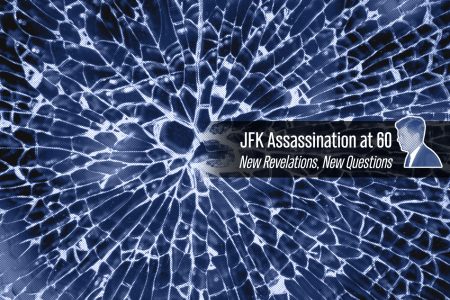
Long after President John F. Kennedy’s assassination — the event that sparked the term “conspiracy theory” — much remains unexplained, and secret. But news about it is still breaking. Read more.
Part 2: John F. Kennedy: More Radical Than You Know
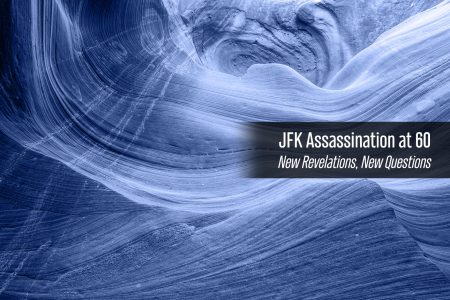
What difference did President Kennedy’s assassination make — then and now? Read more.
Part 3: JFK Assassination: Hiding in Plain Sight, a Startling Revelation
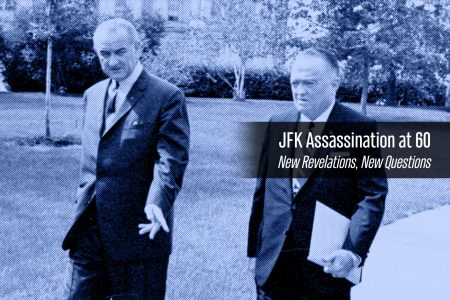
What does it mean when two powerful men — Lyndon Johnson and J. Edgar Hoover — privately agree that the public story of the Kennedy assassination is false? Read more.
Part 4: Echo From the Past May Corroborate Startling New JFK Bullet Claim
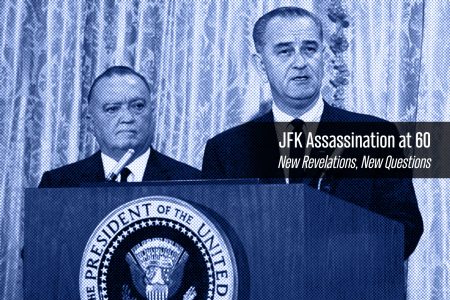
It seems FBI Director Hoover corroborated in 1963 what Secret Service Agent Paul Landis is now saying about the Kennedy assassination bullet discovery. Read more.
Part 5: JFK Assassination: 60 Years Later, Crucial Alibi Dismantled
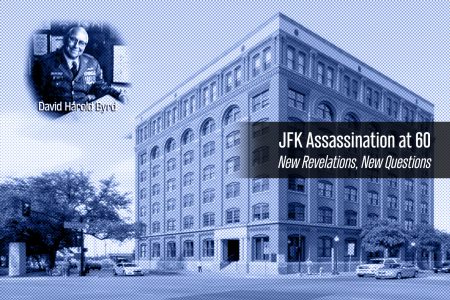
The strange story of a powerful man who owned the notorious building from which Oswald supposedly killed Kennedy. Was he really hunting in Africa, while others hunted the President? Read more.
Part 6: Why Kennedy Was Doomed
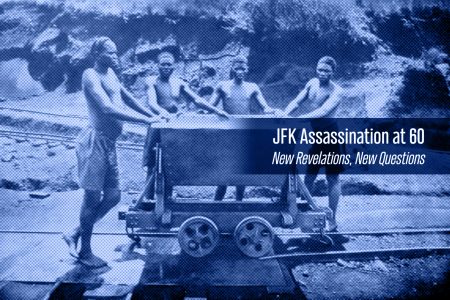
Events on other continents created pressures leading to Kennedy’s death. Read more.
Part 7: Key to JFK Murder: In the Hands of an Elderly Quaker Woman?
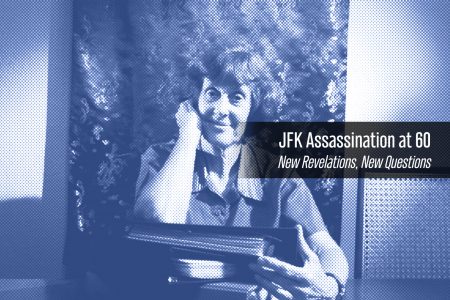
Will she ever tell what she knows? Read more.
Part 8: Evidence Oswald was not a Real Defector to USSR
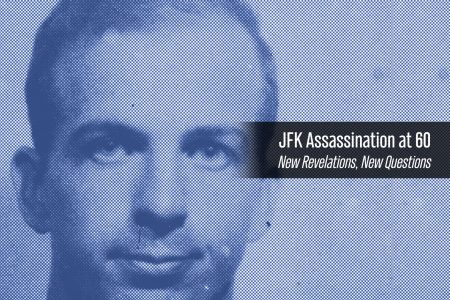
Throughout November, WhoWhatWhy will mark the 60th anniversary of John F. Kennedy’s death with a series of articles which present new original, in-depth research from a forthcoming book on Kennedy presidency’s and assassination. Read more.
Part 9: Conflicting Memories of Two ‘Friends’ of Lee Oswald
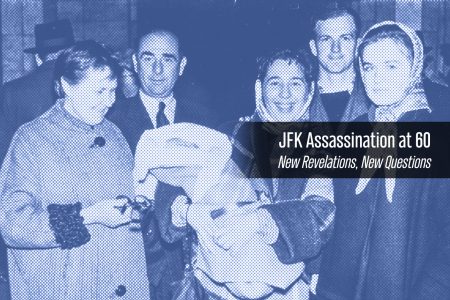
Exclusive interviews with two who knew Lee Oswald, offering unique insights into the enigmatic figure linked to JFK’s assassination. Read more.
